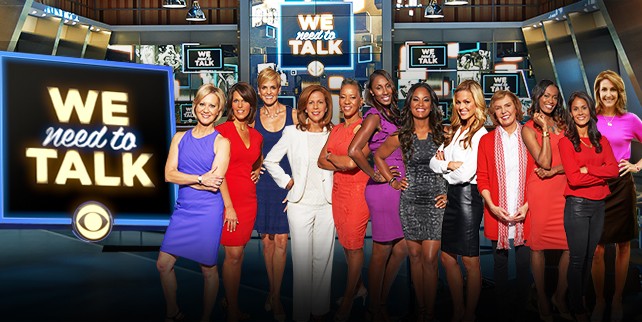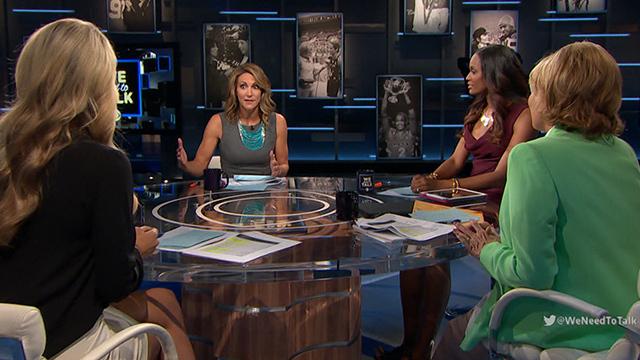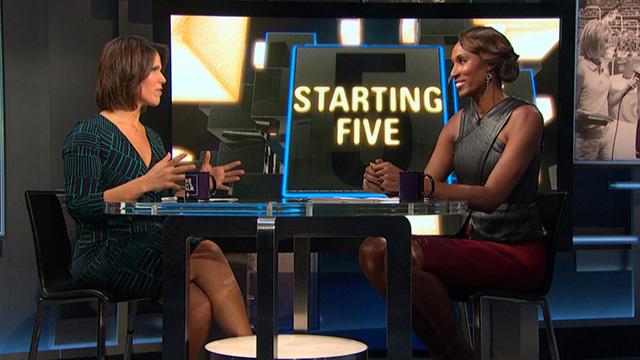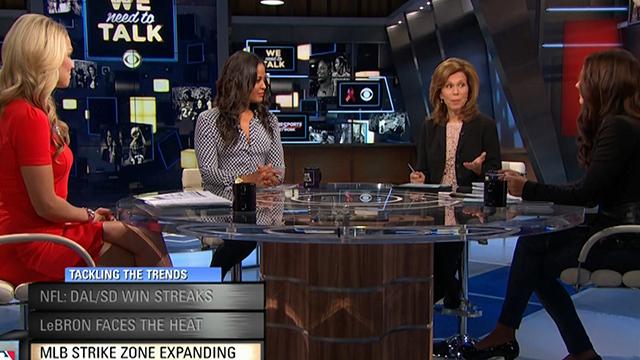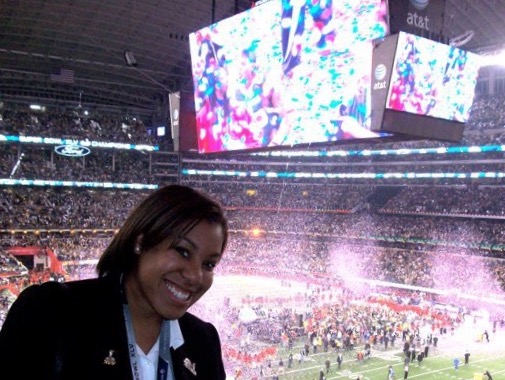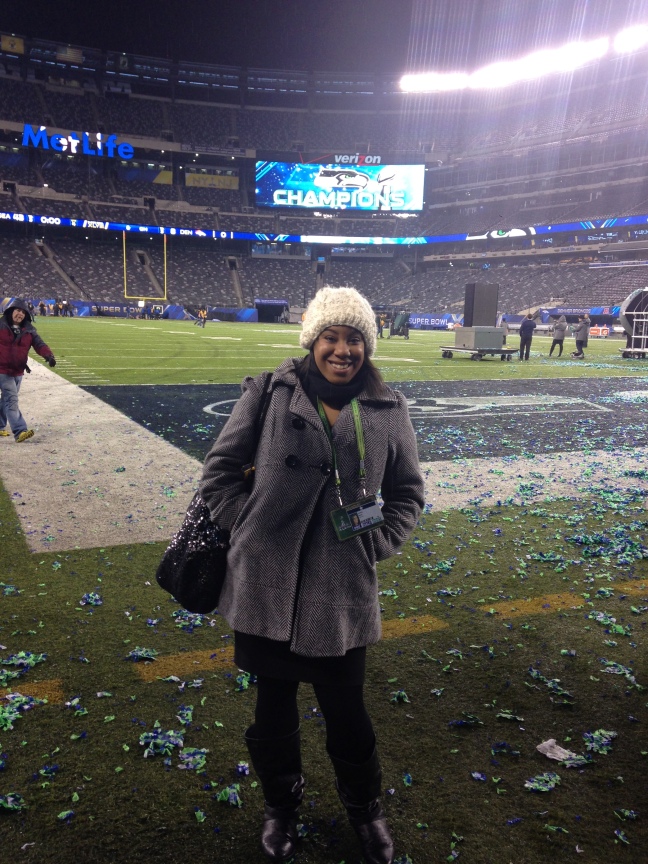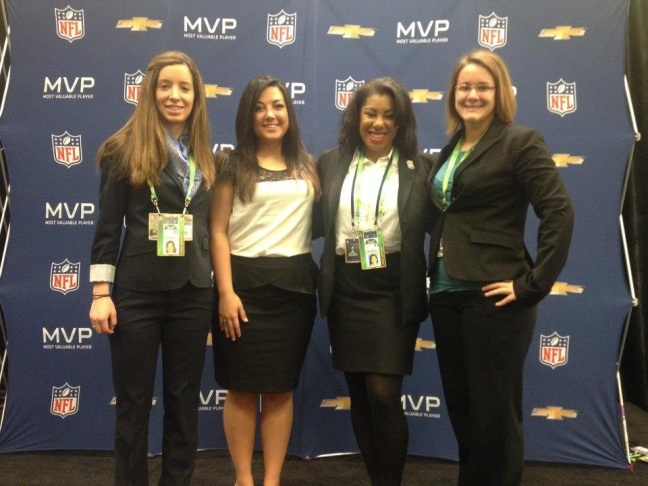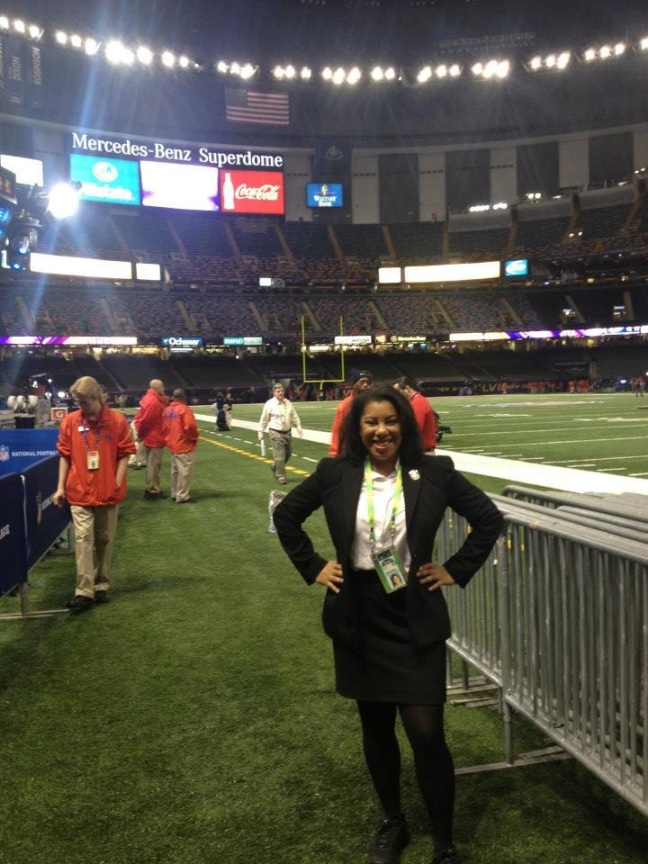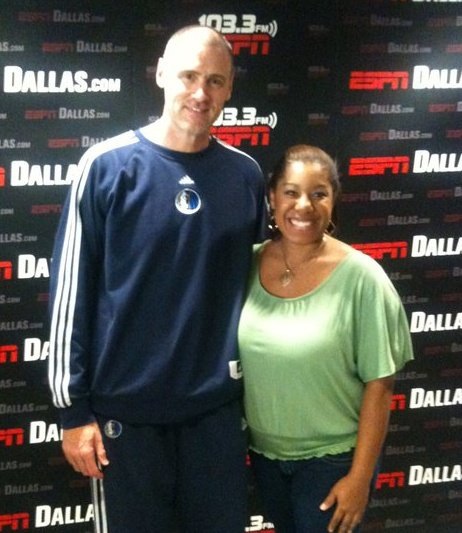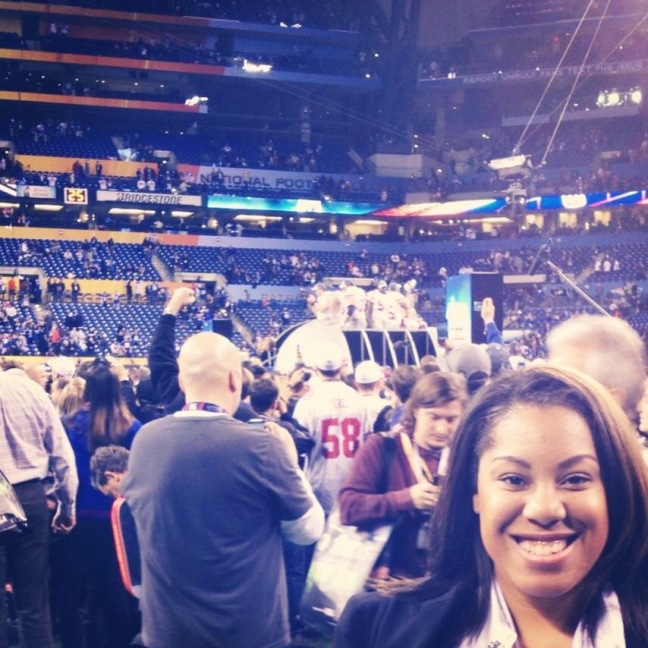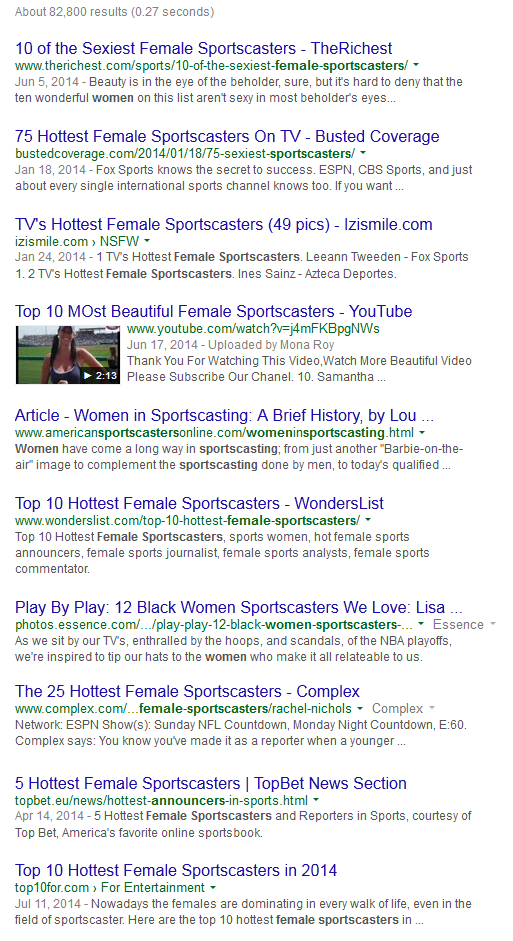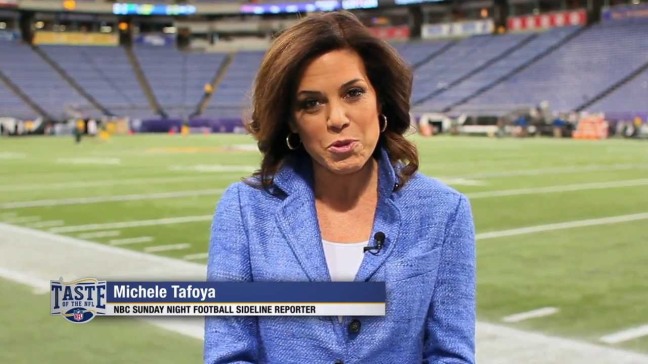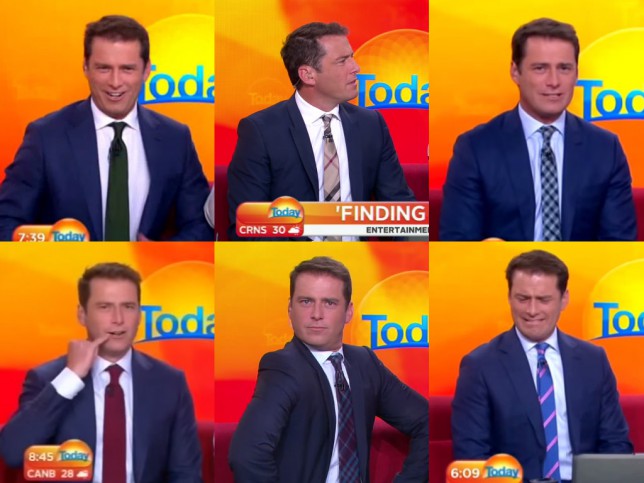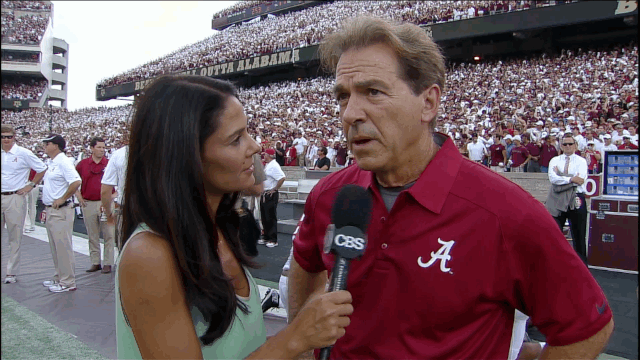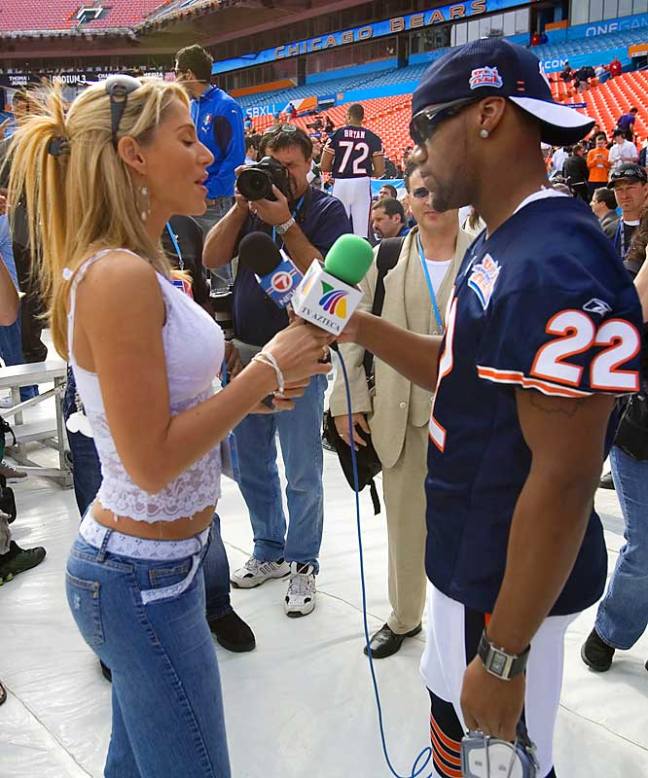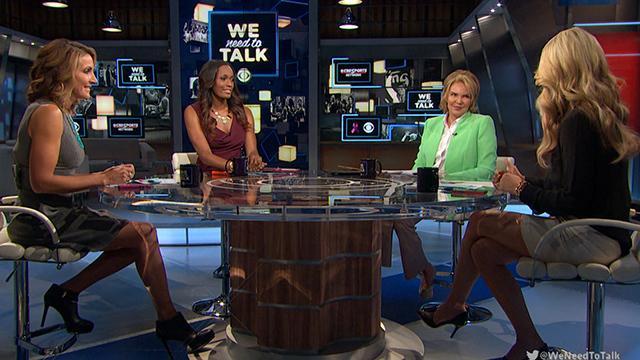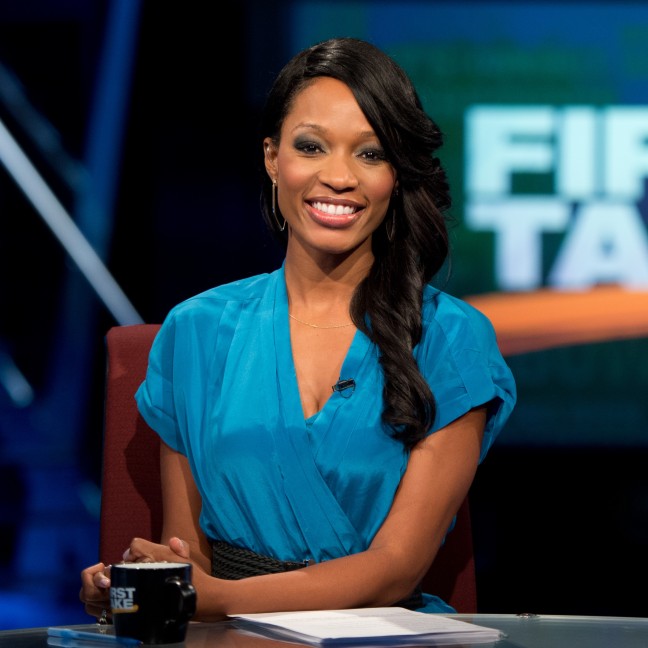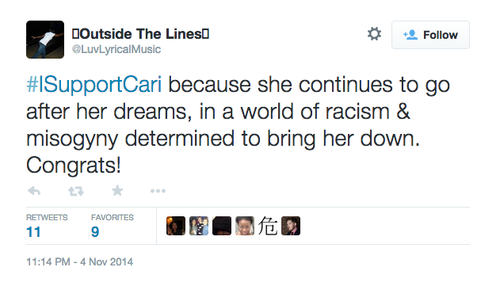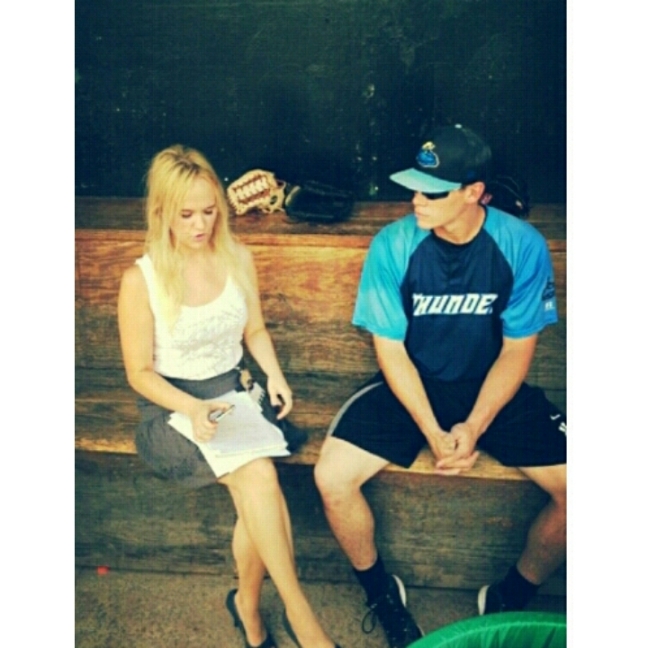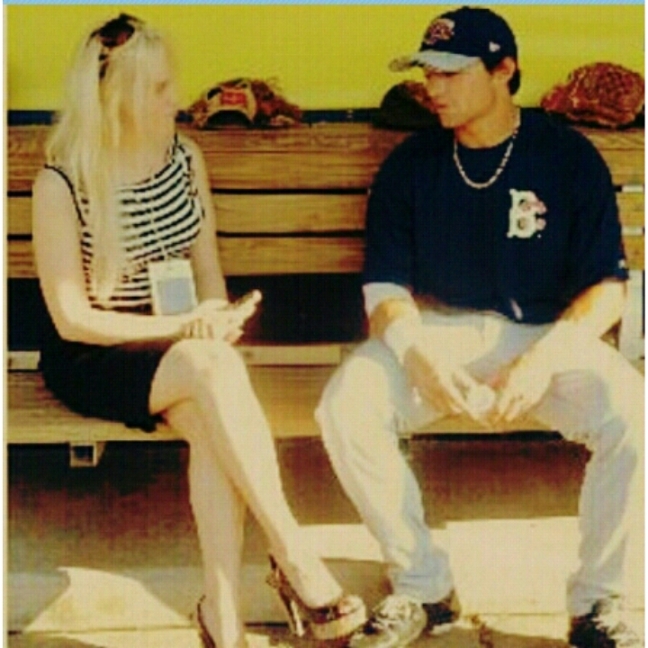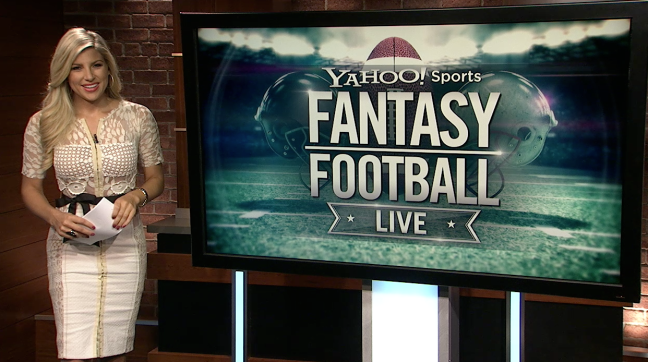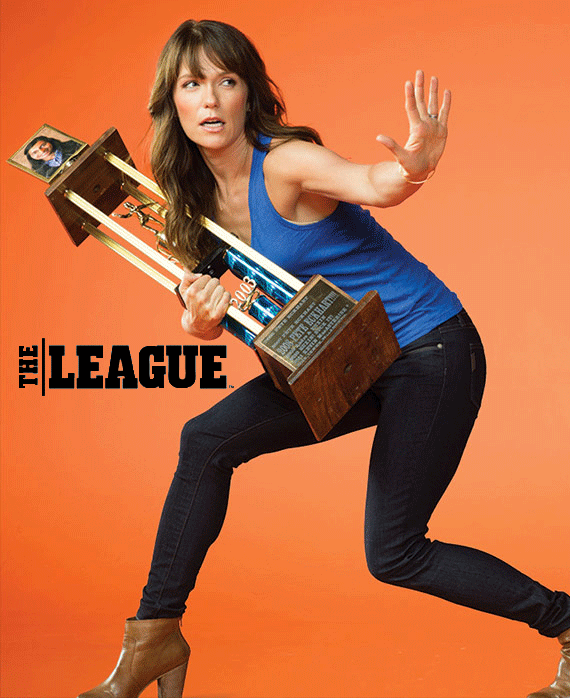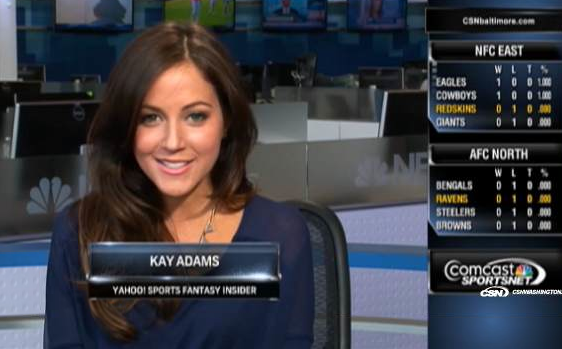
<

For this week’s spotlight, I talked to Kaitlyn Kaminski, who has already given herself a great head start into the sports media field. Although she’s still in school, that hasn’t stopped her from getting her foot in the door and gaining as much experience as possible. Currently, she runs her own website,
Not Your Typical Jersey Girl, where she discusses sports and a variety of topics, and also has written articles for noteworthy media sources to add to her growing portfolio of sports reporting. Getting started on your career early is something I’ve always been a strong advocate for. Keep reading to hear more from Kaminski about how her early start has proven beneficial for her future goals in sports media.
The 11 Percent: What have been some of your experiences so far in sports media?
Kaitlyn Kaminski: In high school, I would cover some sporting events and go to the games. Within the past couple of years I started getting into baseball (NY Yankees), football (NY Giants), and hockey (NY Rangers).
“Twitter has been amazing allowing me to reach out to people that I would never think to.”
It allowed me to start writing for websites like HoundSports, Sports Rants, and The Post Game.
The 11 Percent: What made you decide that you wanted to pursue a career in this field?
Kaminski: I have always known journalism was what I want to do. I remember watching Ernie Anastos broadcasting the news and I told myself that I wanted to do the same thing. Sports has always been something that I would watch with my family-mainly my dad, and it became a huge part of my life. “Sunday Fundays” as I like to call them now revolve round watching sports with my family and friends.
The 11 Percent: Where do you see your career going? What are your biggest long-term and short-term goals?
Kaminski: I see my career going far.
“I know it sounds cliche, but I do not settle for anything. I like to set goals for myself and like to finish what I start.”
My biggest long-term goal is to work for ESPN and show women everywhere that they can do the same thing. My short-term goal is to find more projects that allow me to expand my horizons in the “sports world.”
The 11 Percent: Do you find it more difficult for a woman to be in this field?
Kaminski: I think it is difficult for a woman to work in this field, but I do not think it is as bad as it used to be. I actually did a story on my website
www.notyourtypicaljerseygirl.com discussing this topic. However, it is nothing that a woman cannot handle. Any career that has a male dominant workplace and a woman joins- she will endure stereotypes and harder times.
“The cookie-cutter image and being a tall, skinny, blonde are what people think of as women getting jobs in this industry and I think that needs to change.”
The 11 Percent: What made you join the Association for Women in Sports Media? Are you a part of any other groups of this kind?
Kaminski: I was on LinkedIn and saw that it was a suggested group. I decided to join, as I think it is important that woman unite and mark their mark in this industry.
 The 11 Percent:
The 11 Percent: You write for the Huffington Post, Sports Rants, Hound Sports, and the Post Game. What made you decide to get started on your career this early on?
Kaminski: I have always been a person who has zero patience. I do not see a point in waiting until I am in college to start in this industry. I believing in start early on everything that I do. The more experience the better and I like knowing that I can make an impact writing even though I am only in high school.
The 11 Percent: How did you obtain these writing positions? Any advice for those who are looking to get started writing or get an internship?
Kaminski: I owe a lot of my success to Twitter. I posted an article that I wrote for my friends to read and the next thing I knew I had a direct message to write for HoundSports. The other positions were from word of mouth and me e-mailing different places.
“If you are looking for an internship E-MAIL. I cannot reiterate that enough. You never know who is on the other end of the computer reading your resume and I think that is the greatest thing ever.”
You have to stay persistent and send a follow up e-mail if you do not hear anything just so you know the person/company acknowledged your e-mail and got it.
The 11 Percent: How did it feel when your first article was published?
Kaminski: It was amazing! My first published article was on The Huffington Post on why I want to study journalism. They tweeted my article out on their twitter accounts and the responses I got back were overwhelming. People from all over the world were retweeting the link and commenting on my article. It was truly like Christmas morning.
The 11 Percent: What teams do you root for and how did you first become interested in sports?
Kaminski: New York Yankees, New York Giants, New York Rangers.
My dad always had some game on ESPN or the YES Network, my twin, Kayleigh, and I just started watching religiously within the past couple years.
The 11 Percent: What challenges do you think you may face as a woman in sports. How will you overcome them?
Kaminski: I face being discriminated that I do not know anything because I am a woman.
“People think that only guys know sports and that is not true. I plan on proving people wrong one day.”
Watch out world! 🙂
